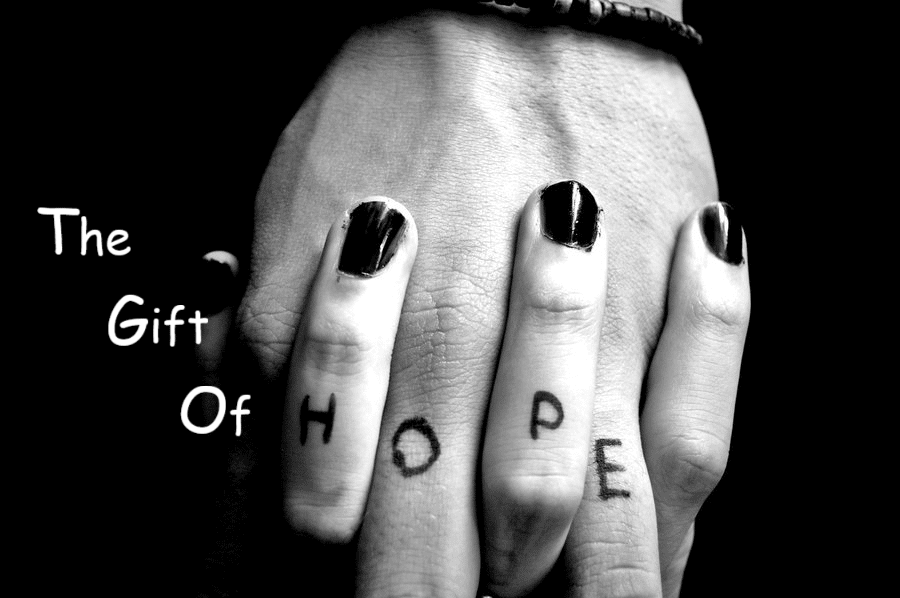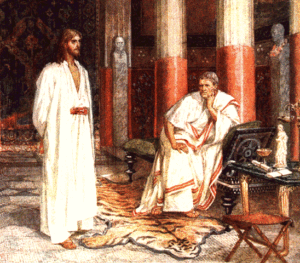Hebrews 11:1, “Now faith is the substance of things hoped for, the evidence of things not seen,” [1] It is both a well-known and frequently expounded-upon verse of scripture. The most popular topic pulled from this verse is faith, and rightfully so. But what about hope? Where does it fit into our lessons about faith?
Every Christian is taught about the importance of faith, and everyone strives to strengthen their faith. Yet, in the pursuit of increasing and/or maintaining our faith, we often forget the sole purpose of faith: our hope. What is your hope? Salvation? Peace? A walk with God? If these questions caught you off guard or made you hesitant in your answer, you are not alone. We have focused so much on the condition of our faith that we have lost sight of its purpose, its why. The why is hope, but not just any hope.
The concept of hope is universal. Everyone has hope, whether it is constant or fleeting, whether they are a Christian or a non-believer. I categorize hopes into two groups. They can be of an adolescent nature or an adult nature. Adolescent hopes, the hopes of childhood, are focused and straightforward. The hope of a trip to an entertainment venue—the hope of a particular gift on a birthday or Christmas morning. A child’s hope is highly focused on a specific desired end, a wish come true; they do not focus on their faith, the strength of desire to obtain the thing hoped for, for that strength comes naturally. Child-like faith is faith in its purest form.
No wonder Jesus used the faith of a child as an example to remind us as adults. “Assuredly, I say to you, unless you are converted, and become as little children, you will by no means enter the kingdom of heaven.” [2] Ironically, one of the greatest lessons about faith does not contain the word faith. Children are not focused on the strength of their faith, only on the thing hoped for. Sadly, some children have hopes of an adult nature, but that discussion is outside the scope of this article.
Adults share some of these same innocent hopes, but mainly hopes of a different nature. The simple hope of a better tomorrow, since today seems to be one of drudgery and monotony. The hope of being able to make ends meet financially, knowing that your family is dependent on your ability to provide. And parents, hoping their children will have better success with fewer disappointments in life than they did. Sadly, many hope to find the strength to make it through one more day.
All of these hopes are real, but we cannot make any of them come to pass, and in that sense, they may as well be dreams. Hope is a reality, yet for the most part, our hopes are beyond our reach. Beyond our control, no matter how much faith you have, you cannot turn them into reality.
Hope built on situations and needs which you cannot control, cannot change, are real, but alas temporary, as is all life on earth. Is this the kind of hope the writer of Hebrews is referring to? I think not.
The hope the writer of Hebrews is writing about is eternal. A hope beyond the wants and worries of this life. It is a hope we do not need to control or shape, for God has given this hope to us. It is not out of reach, as are our own contrived hopes. We can reach this hope through faith. It cannot be earned, bargained for, or diminished. Why?
As the words of the hymn, “our hope is built on nothing less than Jesus’s blood righteousness,” [3]Remind us of what real hope is. A hope safe and secure because God Himself has guaranteed it. While the hopes of this life may become a reality, many more will merely vanish, wishes, wants, and needs, without any foundation. Yet we continue to have faith in them.
Hopeful illusions which come and go, leaving behind a sense of woe, disappointment, which after a while become dreaded, an expected outcome of failure, destroying any notion of faith, eventually destroying the willpower to try.
The sure hope God has given us transcends this life into the next; no matter how many times our earthly hopes vanish, it doesn’t affect our hope in Christ. Knowing this, we can overcome the disappointments of this life because God Himself secures our hope, and no one or circumstance can change that.
When we realize our hope is rock solid, the hopes of this life may likely fail, but their failure cannot alter what God has promised. And this is where a distinction between the two must be drawn. Everyday hopes and desires will always be part of our earthly existence, but we cannot deceive ourselves into the mistake of putting these hopes in the same category as the hope which God has given. No indeed, while many things can affect our hopes, our hope in Christ is unalterable, unchangeable. Do not allow the failures of this life to rob you of a promise, a future without pain, sin, and disappointment.
And in this light, we realize hope is a gift. A gift which the Apostle Paul speaks of, “But I do not want you to be ignorant, brethren, concerning those who have fallen asleep, lest you sorrow as those who have no hope.” [4] Who are those with no hope? We’ve already pointed out that hope is universal, shared by believers and non-believers, synonymous in matters of this life.
Paul is referring to those who have no hope of eternal life. God secures that hope and promise. A promise foretold by the prophets and fulfilled by the birth of our Lord. The hope of salvation is paid for in the blood of our Lord Jesus, and God’s acceptance is revealed to the world by the resurrection of Jesus. A gift promised by a God who cannot lie, not will not, but cannot lie. The gift of hope is offered to all, and those of us who take hold of this hope soon realize what a precious gift it is.
A hope that will not and cannot fail, a prize beyond this life, an eternal prize. Paul informs us of the obvious: while hope is a universal concept, some have no hope. The lack of hope is all too common in today’s world. While there are many signs of a lack of real hope, we will look at the two most damaging to life: sorrow and depression.
Sorrow is common and an expected reaction to events that bring pain. Disappointments or unexpected loss of loved ones. In these instances, sorrow is a normal reactionary feeling. But some sorrow is deep-rooted and continual. And like hope, sorrow is not limited to unbelievers. Many Christians experience a lack of joy in their lives, continually struggling to maintain their faith. A faith that has lost its point, a faith without a clear hope, is weak, and continual sorrow is its evidence.
This leads to the second most common sign of the lack of hope, depression. We are all familiar with depression. In the U.S. and many other developed nations, treating depression is a multi-billion-dollar industry. In the U.S., in 2020, $32.6 billion was spent on combating depression, including treatment and medicine. An additional estimated $189 billion was lost due to unrealized wages, treatment of physical medical issues due to depression, and other factors.
Despite the time and money spent on treatment for depression, in 2023, in the U.S. alone, there were 49,000 suicides. 12.8 million people considered suicide, 3.7 million planned it, and 1.5 million attempted it. This trend continues to grow. Depression is the ultimate sign of a lack of hope. It is unreasonable to assume these people have no faith. They have placed their faith in hopes built on sand and have suffered so many disappointments that they have lost faith in everything and everyone, including themselves.
Anyone who has experienced depression knows depression is like a pit, not one that you fall into, but slowly and unknowingly descend into. If and when it hits you that you are depressed, you are in so deep that you cannot see a way out. It’s a long, circular climb to get out of the pit of depression, and too few find it.
Health problems are collateral damage that accompany depression. Those who are depressed are always physically sick, either honestly or imaginarily, the onset of hypochondria. Depression, if not overcome, can end in suicide or a wasted life, even affecting those around you. Faith without a clear hope is the greatest of vanities.
A life without hope runs to or hides in various distractions, such as music, social media, and parties, which can quickly become forms of escape that we lose ourselves in. Instead of these events being enjoyable and adding to the breadth of life, they become hiding places. Is it not true that most drink and take drugs to forget, to escape, to feel some peace? Being alone in a crowd is real, a life looking for meaning.
These are signs of those who are without Christ, who have no lasting hope. These same indicators have bled over into the lives of Christians, who are the ones who are supposed to possess the greatest of hopes. How can this be? We have lost sight of the hope we should focus on and have replaced it with a constant struggle in strengthening our faith. Which brings us back to Hebrews 11:1, “faith is the substance of things hoped for.” Faith is never meant to replace our hope; it is the result of our hope. In our quest to deepen our faith, we should focus on cultivating our hope, and faith will naturally follow.
What is it that preserves Christians in the time of despair? Regardless of the challenges of life or its outcomes, our hope remains secure. We are no longer concerned whether our faith will fail, because our eyes are fixed on the prize.
When we lose loved ones or face battles with medical issues, some have terminal prognoses, who doesn’t hope for peace or a miraculous outcome? All do. These conflicts are handled differently by the Christian and the non-believer. The Christian’s hope transcends the illness, even a medical death sentence. It is a hope that carries on to the next life. So no matter what the outcome is in the physical, it shouldn’t affect the eternal. If we allow it to, then don’t seek greater faith, but a more explicit focus on the everlasting hope.
This is the gift of hope. Our hope sustains us because it is eternal. It is the reason for our faith, not the other way around. We do not hope for faith; we have faith because of our hope. This is why we constantly waiver and experience ups and downs in our faith; we have lost sight of the point of our faith, our hope in Christ. A hope secured by a God who cannot lie, and has proved His love for us in sending the payment for our failures in the person of His own son.
Paul shows us in this verse that hope is a gift: “But I do not want you to be ignorant, brethren, concerning those who have fallen asleep, lest you sorrow as others who have no hope.” Lest you sorrow as those who do not have the gift of the hope of eternal life, Paul was well aware of the point of his faith and expressed it in several of his letters. He tells Timothy, “I have fought the good fight, I have finished the race, I have kept the faith.” Is this the point, the end of the message? No. The end is, “Finally, there is laid up for me the crown of righteousness, which the Lord, the righteous Judge, will give to me on that Day, and not to me only but also to all who have loved His appearing.”
This is the point of Paul’s faith, his hope, and it should be the same for all of us who have longed for His appearing—a rock-solid hope in Christ, not in our faith. The strength of Paul’s faith is the result of the singular clarity of his hope. A faith so strong he could say without reservation,” For to me, to live is Christ, and to die is gain.” [5] What a gift, what a comfort, our hope is. While hope may be universal, only Christians possess a real hope, for those without Christ have no hope. Their hope dies with their last breath; ours does not.
If you struggle with your faith, ask yourself, ‘What is your faith based on?’ If it’s not your hope, then you have missed the target. Our hope transcends this life; no matter the trials that come, it surpasses the temporary hopes of this life. If you find your faith faltering, may I suggest that you have lost sight of the why? Focus on the hope, singularly, clearly, and faith will follow. What a marvelous gift hope is; it is the key to the abundant life our Lord spoke of. [6]





